interview by Michael McCarthy
Late last year I posted something on Facebook about wanting to replace some of my prescription medications with natural alternatives and a few of my friends commented and asked if I’d tried kratom, something I wasn’t particularly familiar with. I had seen it before, however, at a local convenience store where I had regularly bought CBD gummies. This was a store that had sold Spice, bath salts and other marijuana and designer drug alternatives that ultimately caused numerous deaths and were banned so I was skeptical. However, my friends assured that kratom was indeed all-natural — and that it was actually from the coffee family — and provided links to some podcasts on the subject. The first one I listened to was an interview with a doctor and promoted Brave Botanicals, an online shop that sold CBD, kratom and other products. They had an offer where you could get a free ounce of green kratom for just five dollars shipping and handling so I placed an order since the doctor had stated what my friends had, which was that kratom can help with pain, anxiety and depression, all issues that I struggle with. To my surprise, I experienced significant relief from all of these things within an hour after I took just one leveled teaspoon in a glass of water. Since then, I’ve taken far fewer pharmaceuticals, replacing them with kratom. Accordingly, I thought it was something my readers might be interested in learning about so I reached out to John Bush, owner of Brave Botanicals and the result is the following interview. I hope you will find it informative.
Note that the music albums included in this post were chosen by John as they are some of his favorites.
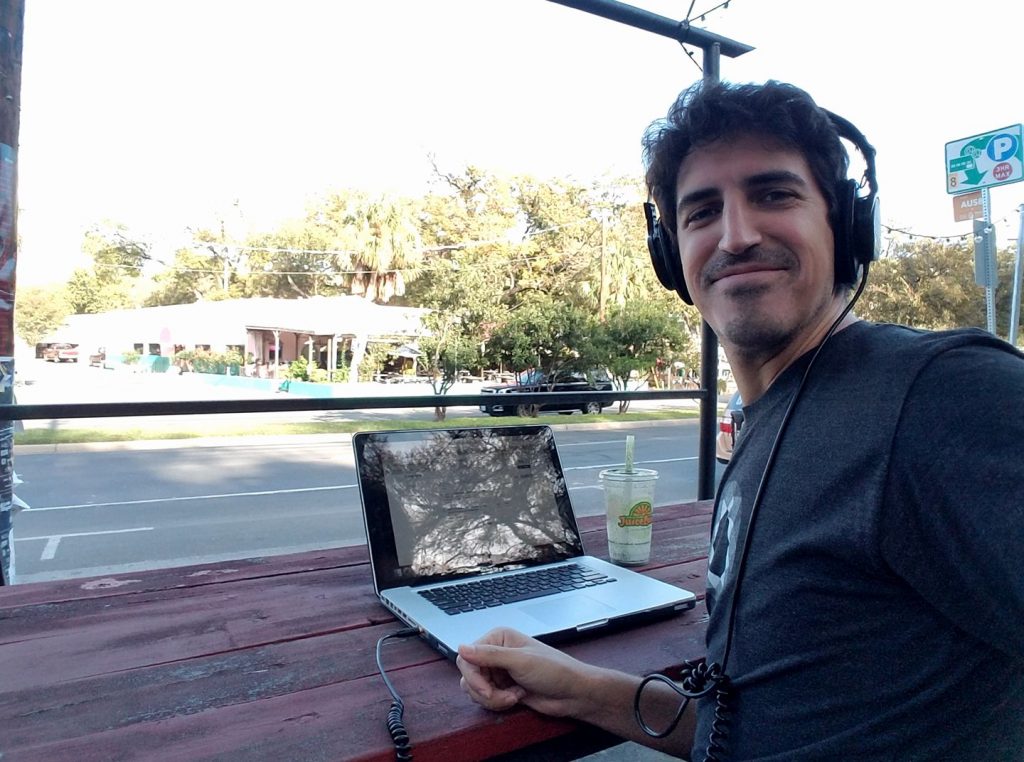
MM: First of all, before we get onto the subject of kratom, I thought it would be interesting to talk about some of the other things you’re involved with since I’ve only heard you talk about kratom. One is The Liberty Beat podcast. What can you tell us about that?
JB: I think it was back in 2013, I started The Liberty Beat radio news service. Essentially, it’s a five minute, top of the hour news service. Much like NPR, but instead of being a pro-government bias, it has a pro-liberty bias. It’s relatively objective. It just essentially covers stories about activism, liberty, government tyranny, peace and freedom, and natural health stuff. And so I produce that along with the help of some journalists and then Brian Hagen, who actually is the voice of The Liberty Beat now, he’s been producing it and doing the audio. And then I got involved in some other businesses and enterprises and kind of put it on hold for a few years but my good friend Neil Radimaker picked it up. He’s with the SNLS Network. He picked it up, got Brian back into the fray, got a little bit of funding behind it and so now it is produced again. It’s on the SNLS News Network along with LRN.FM, which is an online radio network that has some terrestrial radio throughout the country. So, yeah, it’s a great way to educate people about news, liberty and get them up to speed with what’s going on in the world.
MM: Do you still do the Rise Up radio show on LRN.FM?
JB: No, I think it was 2013 or 2014 the last time I did that. The daily radio program where I’d talk about news, views and tools you can use to live a free, prosperous and healthy life. It was an hour-long show every morning.
MM: What are you involved with right now in terms of activism?
JB: My biggest thing is health freedom now. So, in promoting Brave Botanicals, kratom and CBD, I’m also doing a lot to educate people about natural alternatives to pharmaceuticals and how they can live a more healthy, active lifestyle, changing their diet, avoiding chemicals and genetically-modified food, exercising and all that good stuff. And I also kind of shifted away from the political activism more toward self-improvement, growth, kind of finding peace and freedom in our own lives, rather than searching for it externally.
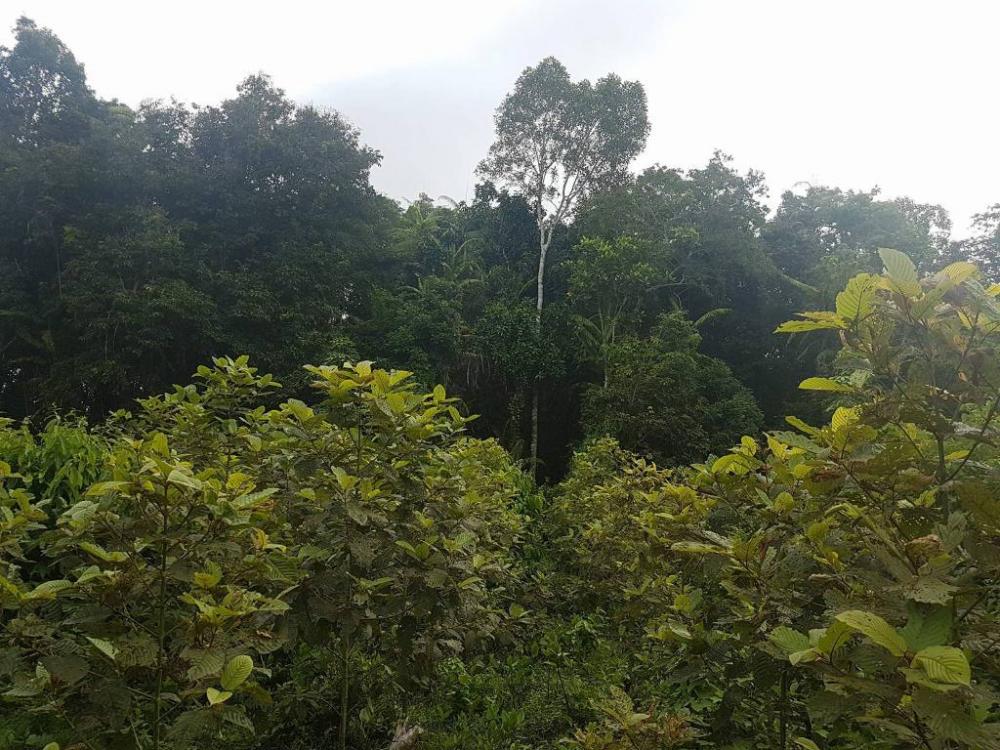
MM: What do you think is the biggest issue right now environmentally-speaking?
JB: With the environment? I think that the biggest polluter in the history of civilization is the department of defense. They’re dropping depleted uranium bombs in the Middle East. They dropped an atomic bomb in Hiroshima, Nagasaki. All of the big tankers and aircraft carriers crisscrossing the Pacific Ocean and Atlantic Ocean is really doing a lot to pollute the environment. So, I think the best thing the United States government could do to help the environment is end all these wars and foreign aggression. In my opinion. Then like on a personal level people can become more self-sufficient. Shop at the farmer’s market. Buy locally produced vegetables and produce. And that would definitely do a lot to alleviate things. I’m not as concerned about the bigger picture environmental stuff going on. I personally believe that the earth is extremely resilient and I think no matter what the earth is gonna be just fine. Absent global, thermonuclear war and mutually assured destruction; then we’re all screwed. We’re like a little parasite on the earth. I don’t believe strongly in anthropogenic global warming. I think that climate change is in large part due to cycles, and in a large part due to the sun, and sunspots, and sun cycles. That’s not to say that people should be reckless or pollute or rely on plastics a whole lot. It’s good for us all to take steps in our own lives, but I don’t think there’s some catastrophic, climate alarmism and we’re all gonna die and go extinct. And I especially don’t think that we need to empower governments, or global governments, to regulate carbon, or to tax people, or control much of human life in order to have a solution. I certainly don’t think that.
MM: Just out of curiosity, are you a vegetarian or vegan, by any chance?
JB: No, I enjoy eating meat. I try to get cruelty free, organic, grass-fed beef and that kind of stuff. I usually just listen to my body. So, I’m gluten-free. I discovered that I have a bit of a gluten allergy. Whenever I have gluten my face gets a little red and my nose gets a little stuffy. I cut gluten many years ago and I try to eat only organic, which is difficult when you’re going out to eat, but in the home we get only organic and non-GMO. But lately my body has been craving more plants so I’ve been doing smoothies every morning and having more fruit. I’ve done the keto diet before but definitely not a vegetarian. I like meat.
MM: Before we get into the kratom, I wanted to ask about your newest product, the Silver Haze CBD Flower, which looks a lot like marijuana. Can you explain the difference for our readers?
JB: So, we now offer Silver Haze, which is a strain of CBD flower. And the big difference between marijuana and hemp flower is that the hemp flower comes from the hemp plant and has less than .3 percent THC. It’s from the cannabis plant. The cannabis plant can have hemp or marijuana and the big differentiator is the amount of THC. So, in 2018 Trump signed the Farm Bill, which essentially legalized CBD and consumable hemp products. And the big caveat is when something has more than .3 percent THC it’s considered to be marijuana and thus is illegal at the federal level. There are some states that have different regulations, but essentially, hemp flower is legal across the country. The effects are different, of course. THC and CBD are cannabinoids that are found in the cannabis plant and these cannabinoids are active compounds and they interact with the body’s endocannabinoid system. The cannabis plant is incredibly synergistic with the human body and the CBD interacts with the CB-2 receptor in the body, which is in our spleen – primarily in our spleen – the THC interacts with the CB-1 receptor, which is found in our brain. The CB-1 receptor is stimulated by the THC and makes people feel high and euphoric. The CB-2 receptor acts to bring about homeostasis or balance within the body’s system, which is precisely why when someone takes CBD, whether it’s CBD oil or CBD flower, it helps to combat inflammation, helps manage pain and helps bring about an overall sense of relaxation, and deals with anxiety, and helps with sleep and stuff.
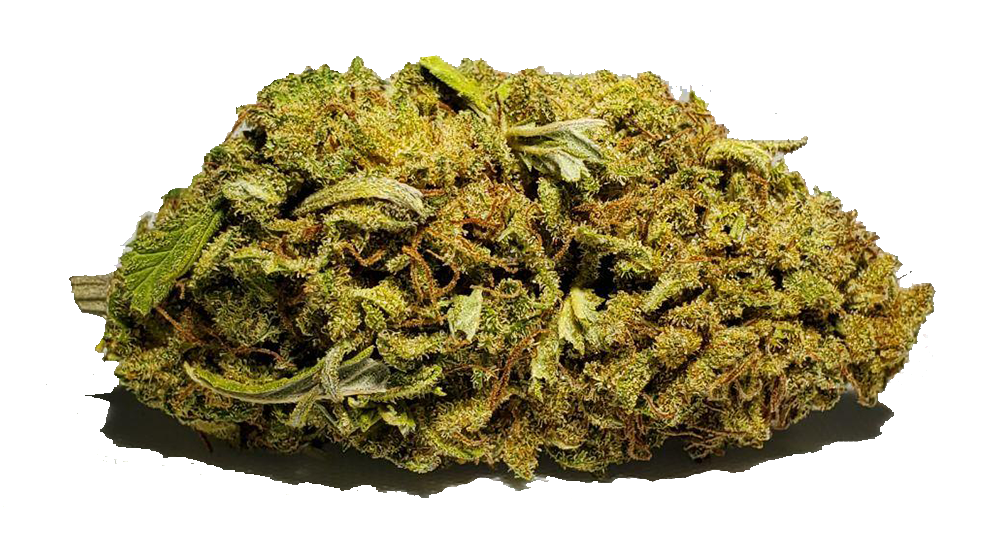
MM: Does smoking the CBD flower have a stronger effect on the user than, say, using an oral tincture under the tongue?
JB: I think actually depends on how concentrated the CBD oil tincture is. For example, we offer a 150mg, 500mg and a 1500mg. So, the CBD flower might have more of an effect on the user than the 150mg, but the 500mg and the 1500mg probably would have more of a change of state. It’s all different for different people. I smoke the CBD flower and it definitely gives me a sense of peace and helps to relax any anxiety. It just feels a little good. Again, it’s nothing like smoking marijuana with THC, which [makes] you feel high, and some people feel a little paranoid or a little weird. It’s really mellow and relaxing.
MM: Now, I know for legal reasons you can’t take credit cards for kratom orders. Can you take them for the CBD flower orders?
JB: No, I’ve had an opportunity to set up credit cards on a separate website for CBD oil that doesn’t have kratom but they still won’t do CBD flower with credit cards. Because of the Department of Justice program [started] during the Obama administration that was called Operation Choke Point. Essentially, they said that it was to help limit money laundering – that it was targeting payday lenders – but really what it morphed into, and what they probably intended all along, was to make it so undesirable industries – industries the government deems undesirable – have problems processing with credit card companies. So, it’s since creeped into CBD, kratom, the firearms industry, adult toy stores – and these are some of my favorite industries [Laughs] and the government makes it so they pressure the banks, which pressure the credit card companies. We do accept E-Checks, which you’re familiar with. E-Check is a wonderful alternative, which is totally safe and secure. And the company that we use for E-Checks is called Green.Money. Green Payment Processing. They have an A+ rating with the Better Business Bureau and all the user has to do is enter their checking account and routing number and it essentially does an electronic draft from their account. It’s simple, safe and secure. And that’s our alternative at the moment. We did, however, just add someone’s ability to mail a check or money order – or cash, if they want to risk it. I wouldn’t send a large amount of cash, but if someone wanted to do like the free ounce [of kratom] for five dollars that’s probably OK. So, we do that, too. Some people don’t feel comfortable doing the E-Check, although, like I said, we’ve never had one issue with the E-Check processor for two years now.
MM: Before I forget, why don’t you tell us about the free ounce of kratom that you offer?
JB: Yeah, so kratom is a really difficult industry. I’ve had my Facebook advertising account shut down and I’ve had Youtube videos censored. An entire Youtube account pulled down. And so I thought what better way to reach people with the power and the benefits of kratom than to give it away for free. So, we offer a free ounce of green kratom. You just have to pay five dollars shipping and handling and we’ll send you the kratom and you’ll be able to try it without having to pay the fifteen dollar retail value. So, people can just go to freeounceofkratom.com, pay five dollars shipping and handling, we’ll mail it out and they can give it a try to see if it helps them.
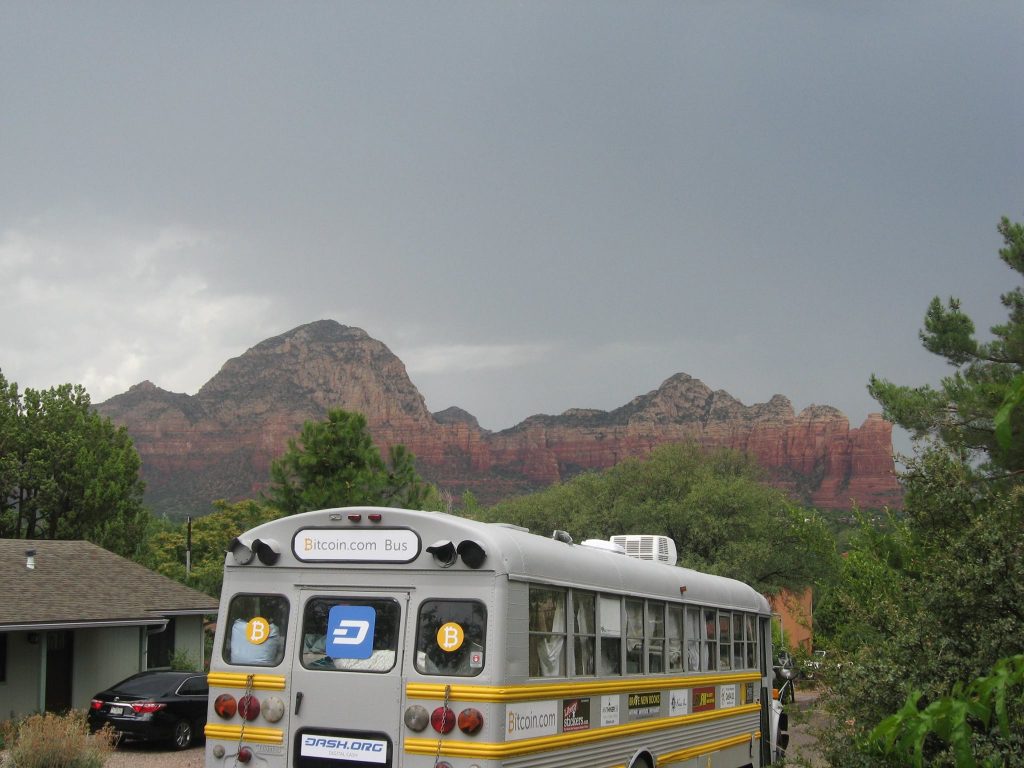
MM: Do you remember how and when you first came to learn of the existence of kratom?
JB: Yeah, I was running a retail bookstore that doubled as a health shop called Brave New Books in Downtown Austin and nobody really bought the books. So, the store revenue was mainly the health products. And a friend of mine named Mark started selling kratom and he packaged it and brought it to the store. He put it on consignment. And I didn’t try it for a little while. I researched it and thought it was a good thing to offer, but I hadn’t tried it. When I tried it for the first time, I just noticed that it felt really good. It helped with stress and relaxation and I was like, wow, this is pretty special. I didn’t take it very much after that except a few months later I was on a cross country promotional tour promoting bitcoin and cryptocurrency with my family, and the mother of my kiddos, and we were funded by sponsors and we had to do podcast advertising, and write articles, and I was the only one driving the bus. And so we had to keep up a schedule to get to meetups and stuff and I had to pay some bills back at home, which meant I had to convert bitcoin and cryptocurrency to dollars, and I was a couple of podcasts behind on my sponsorship obligations. So, I started getting really stressed out and anxious. To the point that I had tightness in my chest. And I remembered, oh, wow, I brought some kratom along. So, I pulled our big, four ton school bus over and poured up a teaspoon of kratom into water and immediately, as I was drinking it – literally, the first few drinks of it, the chest tightness went away completely. And on top of that, I kind of had my state of mind changed as well from one of fear and scarcity – and anxiety about being behind on stuff – to one of abundance and hope and excitement that we’re doing all this great work and people are gonna be forgiving. They know that we’re driving as part of this tour. It just totally changed my mindset and completely alleviated the physical symptoms. So, it was at that point that I was like, wow, this is really special. But it wasn’t until the government tried to band kratom in 2016 that sales really took off. A lot of other vendors were closing their doors, but being an activist for half of my life, I knew it wasn’t until the government actually banned it or added it to schedule one that it would be illegal. So, I actually leaned into my sales when the government started to talk about banning it. And it was then that I saw truly how beneficial it was for people who really need it. I take kratom. It benefits me. It helps with focus, stress and anxiety. It gives me patience as a parent as well. I could live without it, but I saw people who were in chronic pain and they used kratom instead of prescription opioids and they weren’t loopy. They were able to play with their kids. I heard stories of my customers that were addicted to heroin for five or ten years, or were using opioids for five or ten years, and couldn’t quit and they finally were able to because of kratom. My girlfriend, for example, quit Adderall and quit drinking a whole lot because of kratom. That’s really what got me excited about its benefits. Because I’m an activist at heart. So, now I have an opportunity to provide for my family and to really help people and that’s special for me.
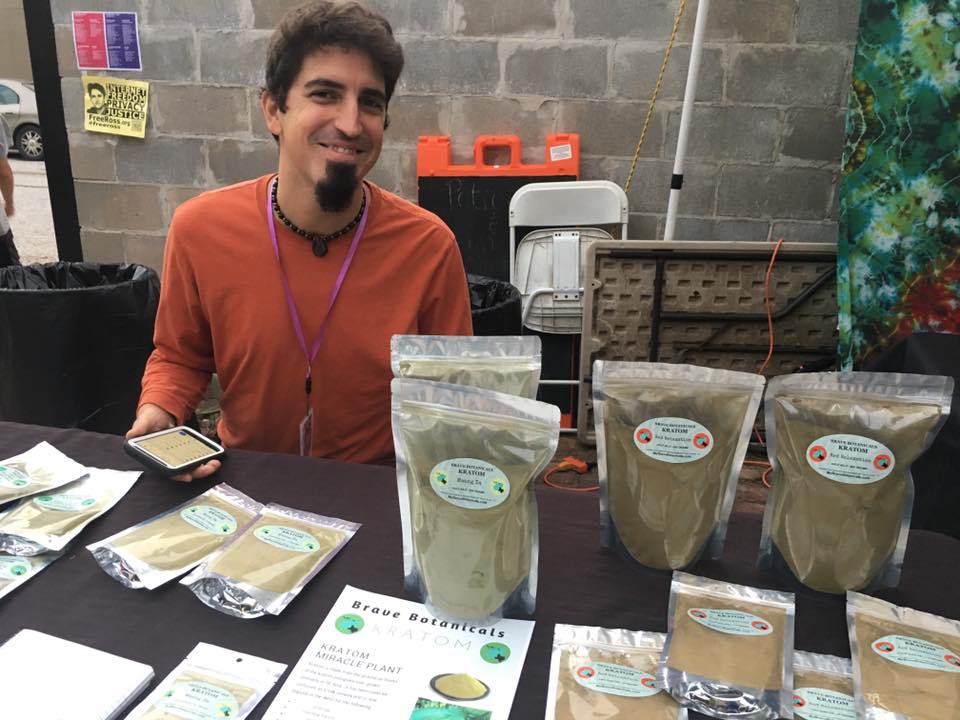
MM: What strain or strains do you personally use?
JB: Right now, I’ve been using Super Green Dragon. I added the dragon at the end. We order it from Indonesia. It’s called Super Green. It’s good for me. I take it as an entrepreneur for focus and energy and for when I’m feeling a little stressed out. I rarely take the red ones. They tend to be a little more sedative. For a while I was taking White Lightning, which is a white maeng da, which was giving me a nice boost, but after you take the same strain for a while sometimes the effects aren’t as strong. So, I started mixing White Lightning – it was like three parts White Lightning, one part Green Dragon – and that would give me a little bit more of a boost, and then I started doing half and half and then, finally, I just went with the straight Super Green. It provides the uplifting boost and helps me when I’m feeling overwhelmed. And not only does it give me a little bit of energy and focus, it also has a little more euphoria than the White Lightning, which helps when I’m feeling a little stressed. So, that’s my favorite one right now.
MM: I think that’s the only one I haven’t tried yet. I really like the White Lightning. The OG Bali I find is too strong for me. Even if I take one capsule, I feel like I took five Vicodin. But I also like Red Relaxation. That definitely relaxes me. But if I want it for energy then I definitely go with the White Lightning. I’ll have to try the Super Green Dragon.
JB: Yeah, it’s a good balance. The Green Maeng Da is too strong for me. That’s one of the most popular strains. It’s what we usually give away for the free ounce, although sometimes we do the Super Green Dragon, but it is a little bit too euphoric for me. For the first couple hours I’m fine but then it starts to be a little too relaxing. That could be good for people that need it instead of opioids and they take it during the daytime, or people [who take it] for stress and anxiety, but for me I’m looking for a little bit of pep and, for me, it’s a little too euphoric.
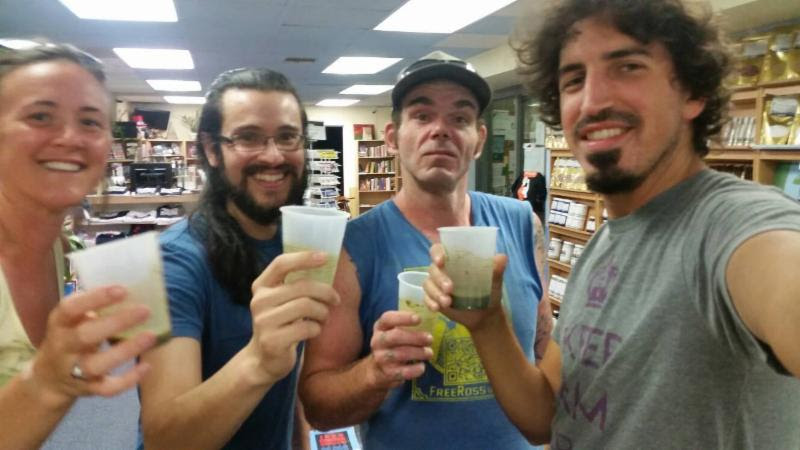
MM: I know you suggest that people take a couple days off from kratom in a row each week to clear it out of their liver and to prevent tolerance. Is that something you practice yourself?
JB: Yes. I should probably practice it a little more, but, yes, I try to take two to three days off every few weeks. It’s a life thing for me. Right now, there’s a lot going on in my life. Big family changes and things are a little more stressful than usual. There will probably be more days in between the breaks. But I’m always sure to take some time off so you don’t develop a tolerance. So your kidneys and your liver have the opportunity to rest and mainly just to show myself that I don’t need to rely on it to get by. The alkaloids, like you said, the red bali, some of the strains are a little stronger while it’s relatively benign, especially compared to the pharmaceuticals, but alkaloids are having an effect and your liver and kidneys are having to filter out that so it puts a little wear and tear on the liver and kidneys.
MM: Yesterday, I saw liquid kratom at a local apothecary. What are your thoughts on that?
JB: A second ago I said wear and tear on the liver and kidneys. If you take it moderately and you use it responsibly you should be fine. But there is research that shows that if people take an excessive amount and they take it every single day for an extended period of time it can damage the liver. Now, you’ve gotta be taking a whole lot. But there are people that take 20 grams a day. There are people that take an ounce or a little bit less than an ounce a day. And that’s a lot. That may be preferable to someone that was formerly taking heroin, or someone that was taking 150mg of opioids or whatever, but it’s just important to use personal responsibility. So, I wanted to clear that up. On that same note, I’m not a fan of extracts. The liquid kratom you saw is probably an alcohol-based extract, which really brings in a concentration of the alkaloids. I think it’s easier to become dependent on kratom, or it’s easier to use kratom irresponsibly, when someone’s taking the potent extracts. So, I try to just take the kratom and encourage people to take the kratom in its purest form. That being said, if somebody’s really struggling, and they’re coming off of drugs, and they’re pounding kratom because they just were taking a two-year heroin binge, and their kratom tolerance gets too strong, and they can barely feel the kratom, so they go on the kratom extracts, this is still a better thing than to still be on heroin. It’s all unique to people’s individual situations. But if it’s someone who’s using kratom moderately and isn’t in an extreme situation then it’s probably best to avoid the extracts in my opinion.
MM: What States is kratom currently illegal in and have you heard if that might change anytime soon?
JB: Kratom is currently illegal in Alabama, Arkansas, Indiana, Rhode Island, Tennessee, Vermont and Wisconsin. And San Diego county – or maybe it’s San Diego city – and in Denver, Colorado of all places, where mushrooms are now legal psilocybin. There’s a community in Florida and a handful of cities. I think the tide is now turning to where there’s gonna be fewer political jurisdictions trying to ban kratom. And, yeah, the American Kratom Association has the Kratom Consumer Protection Act, which is a wonderful defense against the States or county governments that are trying to ban kratom. It comes in and regulates kratom. I would prefer just free market, personal responsibility, responsible vendors, not government regulation. I’m not a fan of government at all. I think when the government gets their hands on things they make it worse. Create red tape and there are all these fees and you have to register with the government with the Kratom Consumer Protection Act. The American Kratom Association says they’re going to introduce it in 20 States next year, Texas being one of them. I don’t see any reason to introduce it in the State of Texas or even Massachusetts where there’s no talk of banning kratom in these States. So, just leave it be. But, like I said before, it’s a wonderful defense if lawmakers are saying they’re gonna ban kratom. They’ll come in and say, OK, we’ll regulate it to make sure it’s not adulterated and no one’s mixing it with fentanyl and selling it and so forth.

John Bush and family at Zilker Park Trail of Lights on 12 23 19.
MM: Have you heard of people mixing it with fentanyl or anything like that?
JB: I haven’t. There have been reports of that, but I think it might just be sensationalism and media. Maybe it’s happened once or twice – I don’t know – but it doesn’t make much sense to do that. I guess the vendor could want to have the best, most potent kratom. But fentanyl you can die from. And if you kill your customers you’re not gonna be in business much longer. I think that might be fear-mongering.
MM: I can never fathom why these heroin dealers mix heroin with fentanyl. Like you said, they’re killing their customers.
JB: I know, it’s really stupid. Maybe fentanyl is less expensive than the heroin? I don’t know. But it’s a problem. It’s important to use personal responsibility with your kratom vendor. I guess it’s hard to be personally responsible if you’re addicted to heroin and really desperate, but I’m a fan of legalizing all drugs. It might sound extreme, but I wouldn’t all of a sudden start using heroin because it’s legal. Not many people would. But the people that do use heroin, cocaine, MDMA, for example, the club drug, then they would be able to get it in a regulated and more responsible fashion rather than doing it in the back alleys and stuff. That’s what I think about drugs.
MM: Yeah, I think they should all be legal as well. If they want to tax them heavily then I don’t see a huge issue with that if it helps with things like building better schools and rehabs and so forth, but, yeah, I think they should be legal. I think you’re just putting people in jail for stupid reasons because of the laws that exist around drugs right now.
JB: Yup. And it creates a black market where there’s more crime and gangs. And if someone steals your bag of pot you can’t go to the police.
MM: What do you think about this new thing where you have to be 21 to purchase tobacco products?
JB: I think it’s silly. I’m an anarchist. I don’t believe in government at all. I believe that every service that government provides can be more effectively, and efficiently, and justly, provided by markets, entrepreneurs, community organizations and church groups. So I don’t agree with any government regulation or prohibition on any of that stuff. I think by the time you’re 18 – even before you’re 18 – you’re a grown man or woman and can make responsible choices about what you put in your body. I think Trump tries to say that he’s a conservative, but that’s not very conservative to try to regulate what people can put in their body. And people can sign up to go fight and die in a war overseas but they can’t come home and smoke a cigarette because they have PTSD and it relaxes them. It’s silly.
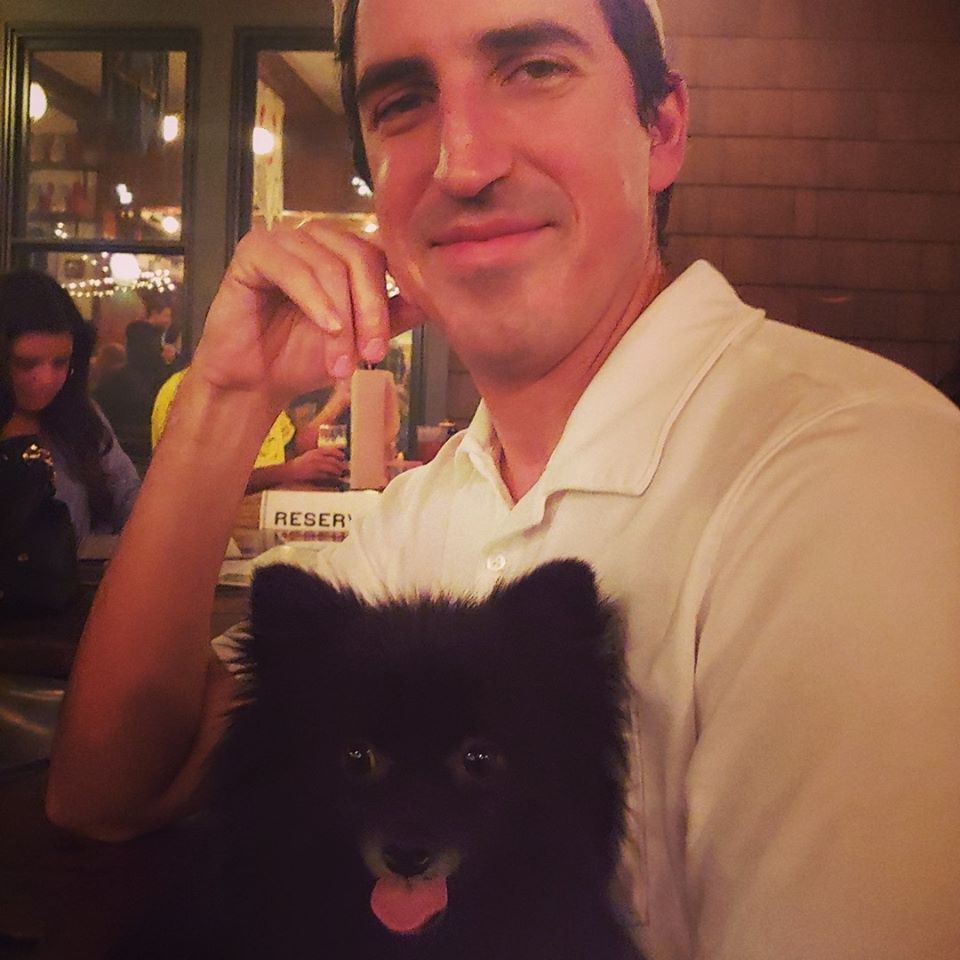
MM: Definitely. Now, I believe one advantage kratom has over opiates is that it doesn’t cause respiratory depression. Is that correct?
JB: Yeah, that’s big. That’s one of the big promises. It has many of the same effects when it comes to alleviating pain because it interacts with the opioid receptors, but it doesn’t cause respiratory depression. And it’s not as addictive as prescription opioids. So, I think that’s one of the reasons why it’s a big threat to the pharmaceutical companies. Because it is so beneficial and it is such a less of a risk.
MM: You mentioned hitting opioid receptors. What are some of the other things that kratom does chemically within the brain?
JB: It also interacts with the serotonin receptors and the dopamine receptors, which help to elevate mood. And I think that’s why it helps create a sense of well being and helps people with stress and anxiety.
MM: Do you know if it does anything with GABA?
JB: Not that I know of. I would have to look that up. I know that Dr. Christopher McCurdy, based in Florida, does a lot of good work when it comes to the science and how kratom interacts with the body. They’re doing a lot of good research there at the University of Florida.

MM: Are there any particular studies that you could name that people could look at if they were curious to do some research on kratom?
JB: There is a google folder that a woman assembled. I think she started assembling it in 2018. Maybe in 2016. And it’s just a wealth of research. I should just make it publicly accessible on my website as well. But you could include that in your interview if somebody wanted to just have a treasure trove of kratom research. But I would recommend people take a look at the research of Dr. Christopher McCurdy. He’s really doing a lot. And a lot of controlled studies, getting in deep with what kratom actually does. I think he discovered that 7-hydroxymitragynine. There are two main alkaloids in kratom. There’s Mitragynine and 7-hydroxymitragynine. The Mitragynine is what primarily produces the beneficial effects and he found that the 7-hydroxymitragynine is actually the alkaloid that’s more addictive. So, apparently, there’s a method of brewing kratom tea that they use in Indonesia that really limits the 7-hydroxymitragynine. It’s kind of at fault for Christopher McCurdy that they’re talking about learning that method and then patenting it, which I think would be kind of rude. But that’s beneficial information to have.
CLICK HERE FOR THE MOTHERLOAD OF KRATOM RESEARCH FOLDER
RANDOM QUESTIONS:
MM: Did you make a New Year’s Resolution this year?
JB: I did. I’m still kind of formulating some to put them on paper to be very specific about my goals, but one of them is to exercise five out of seven days and I’m pretty good on that one so far. I’d like to double my business revenue. The goal is to double it by June. The end of June this year. That’s gonna take a lot of work to do that. And then I want to work with my kids to be more responsible when it comes to cleaning up after themselves. And preparing their own snacks and stuff. That’s a few of them.
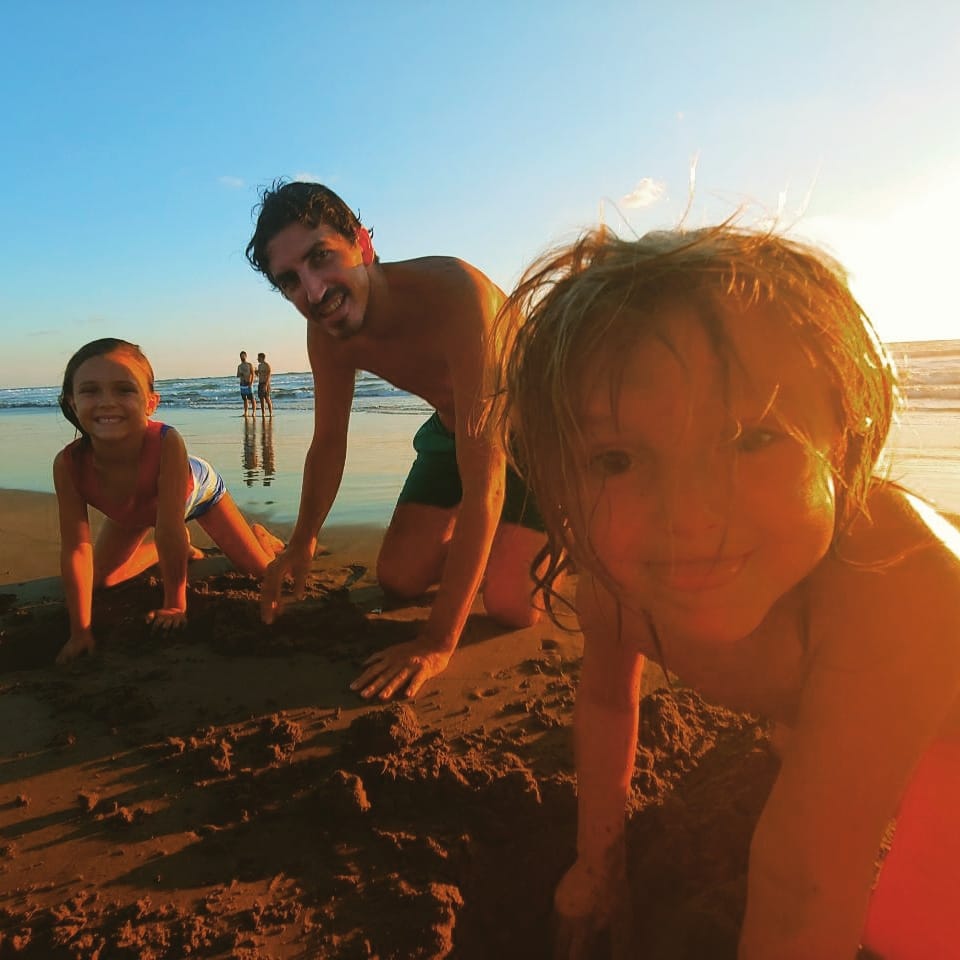
MM: How old are your kids?
JB: They’re 2 and 4. I’m sorry, they’re 6 and 8. [Laughs] Yeah, that’s a big difference there. I did an interview earlier and talked about when we went on our bus trip. They were 2 and 4. Now they’re 6 and 8.
MM: What’s the worst day job you’ve ever had?
JB: I’ve actually enjoyed all of my jobs. I worked at Best Buy for three and a half years. That was my first job. That was great. And I sold cars for a little while. I was part-time working at a credit union in the drive-through lane. I guess that was the most dull job. Since 2009, I’ve been self-employed working on non-profits and various entrepreneurial enterprises. So, I’ve always kind of been my own boss and I’ve enjoyed every bit of work that I’ve done for the past 10 years.
MM: What’s one question you’re always wishing interviewers would ask and how would you answer it?
JB: That’s a good question! Oh, OK, here’s one that I wish people would ask, I guess. The question would be, do you believe the official story about what happened on 9/11? And the answer would be no, I do not. I believe that the buildings one, two – and World Trade Center building seven – were brought down by controlled demolitions. And I believe the United States, British and Israeli intelligence agencies were involved and it was all done as a pretext to invade Iraq, Afghanistan and further countries in the Middle East like Libya and now Iran. And also to create a surveillance state in the U.S. And a police state in the U.S.
MM: Well, that happened and the government implemented that system where they’re listening to every phone call and scanning every E-mail, and they’ve got their nose on everything, and it’s like nobody cared when they did that because they were all scared after 9/11.
JB: Yup, it was a classic move. I think the biggest smoking gun that’s hard to refute is that World Trade Center building seven collapsed six or seven hours after the first two buildings did. It wasn’t hit by a plane and it imploded on its own footprint much like a controlled demolition. There are even squibs where you can see the floors and the support beams popping out. And then underneath all of the towers – one, two and seven – there’s liquid molten metal that burned for months and months. An office fire, or even the jet fuel, wouldn’t have been able to melt all that steel, and all that metal, and have it burn for months and months after that. So, something’s up there.
MM: Are there any misconceptions that people have about you that you’d like to clear up?
JB: I guess because I identify as a libertarian or an anarchist people think I’m selfish or love big corporations, but that’s not the case. I’m a very compassionate person and I genuinely believe that freedom – genuine freedom – could help most people to realize their human potential.
MM: On another note, if someone was giving you a million dollars to give to charity and it all had to go to the same charity or cause, which would you give it to?
JB: I’d probably start my own charity. I’ve always wanted to help families that are victims of child protective services. Families that have their children taken away because they smoke cannabis. That’s a niche I’d like to help with.

MM: That’s a good one. If you could resurrect any one person from the dead and they’d be happy to bring back, who would you bring back and why?
JB: Wow. My initial thought was Jesus Christ, but apparently he already resurrected. [Laughs] Maybe someone like John Lennon. I think he was on the verge of really disrupting the American empire then he was murdered by the U.S. Government. So, I like his music. I really appreciate his message. And if he were to be alive today he would definitely be a hell of a lot more of a change-maker than Paul McCartney, for example.

MM: What was the last book you read?
JB: I’m currently reading a book called The Ultimate Marketing Plan. It’s by a guy named Dan Kennedy. I’m also reading The Ultimate Sales Letter by Dan Kennedy. I also just finished an audiobook called The No B.S. Guide to Direct Marketing for Non-Direct Marketing Businesses by Dan Kennedy. So, I’m kind of obsessed with this Dan Kennedy guy right now.
MM: How did you get turned onto him?
JB: I’ve got this guy named Grant Cardone, who’s like a business and success guru. He really does a lot in sales training and motivation. And he works with this guy named Frank Kern, who’s a big marketing expert and Frank Kern used to work with and be influenced by this guy named Dan Kennedy. I think that’s where. He’s like the Godfather of direct marketing. Marketing, not just like putting up a billboard or putting out random advertising. Marketing targeting your market with a very specific crafted message to their particular interest and then ensuring that you capture the lead’s contact information so that you can follow up with them. That’s what I’ve been trying to focus on.
MM: Sounds like something I do as an author who self-publishes.
JB: Yeah, authors are great. That’s what our free ounce is. It’s a free ounce so they get to try it with very little risk but I also capture a lead. This style of marketing you get someone to raise their hand and express interest in your product, your service or your particular industry. They raise their hand, you capture their contact information and, ideally, their shipping address as well, and then you stay in communication with them and you build trust. They start to trust you. They start to value your product. They start to see you as an expert. And then you can work them up your value ladder offering them other services or products that are maybe a little more expensive that they wouldn’t buy initially. That whole funnel that can do this.
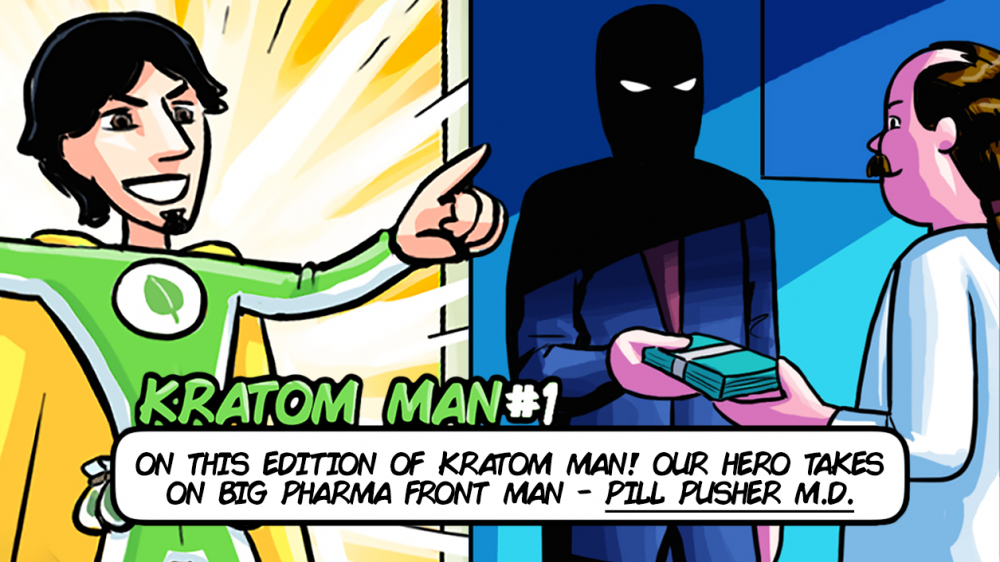
MM: Aside from taking kratom, what are some of the things you do to cheer yourself up when you’re depressed?
JB: The CBD flower helps as well. And then exercise. Going on a jog is nice. I like to watch Netflix. And HBO shows. My girlfriend and I will get addicted to some shows and just pound through a whole season. And then playing with my kids. I like getting lost with my kiddos. That’s always fun.
MM: What are some shows that you’d say are your favorites on Netflix or HBO or whatever platform?
JB: For the longest time, Sopranos was my all-time favorite. I’ve seen that whole series three times. I’ve watched it all the way through. And, of course, more recently, Game of Thrones was really spectacular. I’ve been watching House lately. House M.D., the obnoxious genius –
MM: – That’s one of my all-time favorites.
JB: That’s a good one. I like that guy. And then on Netflix, we recently watched The Haunting of Hill House, which is a one-season show about the Hill House, which apparently is a true story. It’s really good and it’s genuinely creepy. That kind of got me on wanting to watch horror films because I like films or shows that elicit a physiological response in the body. It could be like a really moving sad show or something you’re really happy about and you actually cry. This [series], I got the chills at least a few times every episode. And when we’d finish the episode and it’s nighttime I felt a little creeped out. It was really powerful stuff.
MM: You should check out a show they just put on Netflix called Messiah. It’s really, really fascinating. It’s about this guy who could be a messiah or he could be the world’s biggest fraud, but it’s really interesting.
JB: I just watched it. I just watched it in two days.
MM: Yeah, me, too.
JB: I liked it. I won’t spoil anything, but I thought whenever he started talking with the President they kind of lost me. It lost some of its believability. The President was a terrible actor and very weak and it didn’t seem like a Presidential character. So weak and, like, easily manipulated. So, it was downhill from there. I still enjoyed it. It was entertaining.
MM: Have you watched The Chosen One?
JB: No.
MM: That’s another series about somebody who may or may not be this holy, supernatural figure. There are two seasons so far and they really keep you guessing. It’s different than Messiah for sure, but it’s pretty cool. I’d recommend it.
MM: Finally, since we started off wholly as a music site, I have to ask, what are you into music-wise?
JB: I start with classic rock. The Beatles. Pink Floyd. Led Zeppelin. The Doors. Santana. I’m from Austin, Texas, so I really like Stevie Ray Vaughn and Jimmy Vaughn. I’m actually acquainted with Jimmy Vaughn. He’s a buddy of mine. So, he’s done shows at our bookstore. And then more lately I’ve been listening to some reggae. I just got deep into Grateful Dead recently. And then my daughter likes a lot of pop stuff like Taylor Swift and, surprisingly, some of it is actually some pretty good music.
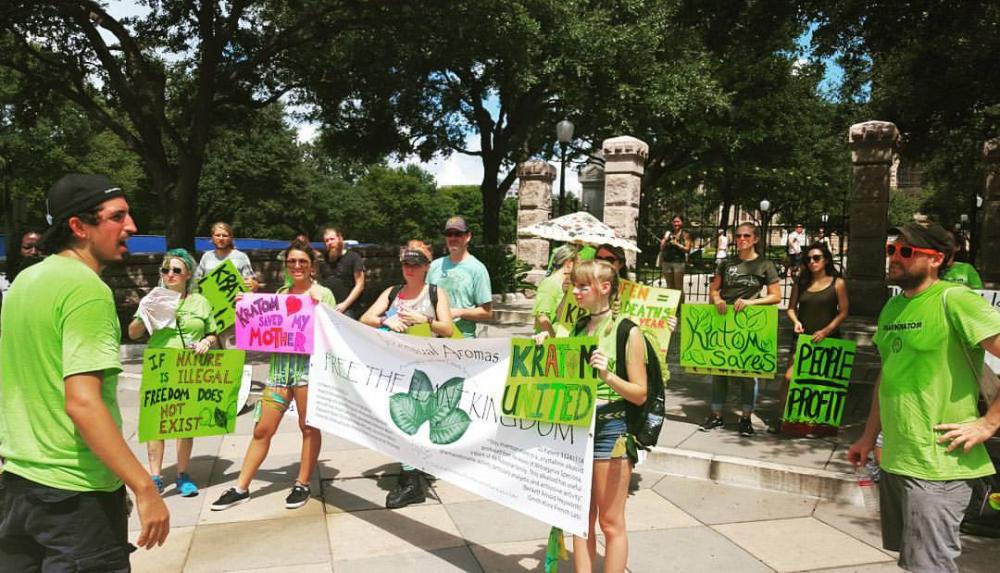
PLEASE NOTE:
The information shared in this interview is for educational purposes only. These statements have not been evaluated by the FDA. As always, please consult your physician before starting on kratom, CBD or any other products.
PERTINENT LINKS:
John Bush/Brave Botanicals Youtube Channel
The Motherload of Kratom Info on Google Drive
Special thanks to John Bush for taking the time to speak with us!

Leave a Reply